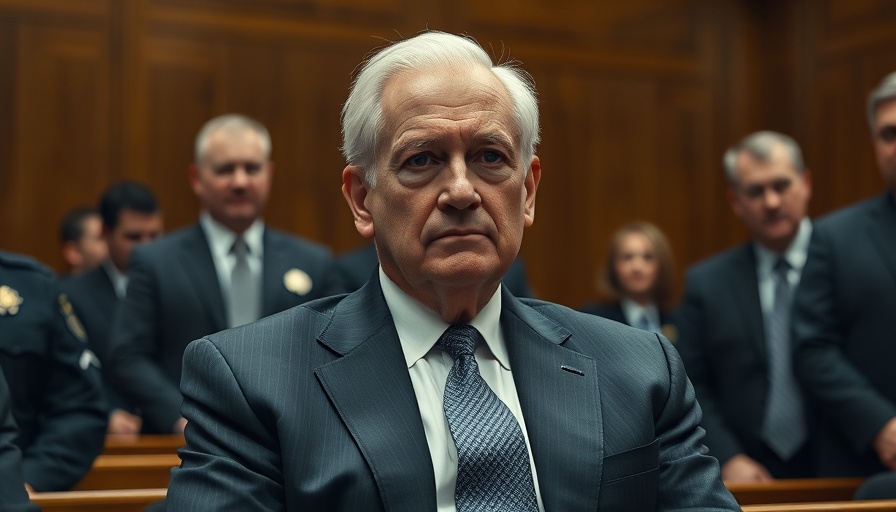
Harvey Weinstein's Shocking Decision to Remain Silent
In a trial that has captivated public attention and reignited discussions about sexual misconduct and accountability in Hollywood, Harvey Weinstein, the once-powerful film producer, has declared that he will not testify in his ongoing sex crimes retrial. This decision, disclosed by his attorney, Arthur Aidala, adds yet another layer of intrigue to a case that has already shaped the narrative around the #MeToo movement.
The Stakes: What Does This Mean for Jurors?
As the trial advances to closing arguments, jurors will now deliberate without hearing directly from Weinstein, who has consistently denied the allegations against him. His silence—evocative and telling—might impact jurors' perceptions. A lack of testimony means jurors are left to navigate the evidence and the emotional accounts presented by the accusers without the defendant's words to counterbalance them.
Emotional Testimonies: The Voices of the Accusers
During this retrial, the women accusing Weinstein have opened up about their harrowing experiences. Jessica Mann, an actress and hairstylist, detailed the assault allegedly committed by Weinstein in a hotel room, while Miriam Haley and Kaja Sokola recounted similar incidents. Their testimonies have painted a disturbing picture of a powerful figure using his influence and charm to prey on vulnerable individuals. Emotional and graphic, these accounts underscore the complexity and intensity of the trial, reminding us of the broader societal issues at play.
The Legal Implications: A Defendant's Choice
Weinstein's choice to opt out of testifying reflects a broader legal principle in the U.S.: defendants are not obligated to testify in criminal trials. Many choose to remain silent to avoid potential pitfalls during cross-examination by prosecutors, which can be particularly daunting in high-profile cases. Weinstein's attorney mentioned that they considered whether jurors might feel compelled to hear from him, suggesting a keen awareness of the trial's dynamic.
The Context of the Case: A Long Road to Retrial
Weinstein's legal saga has been arduous, marked by emotional turbulence and significant public scrutiny. After being convicted in previous trials in both New York and California, he found hope in a new trial granted by the state's highest court, which overturned his earlier conviction. The gravity of the accusations against him, now resurfacing in court, has reignited discussions about consent and power dynamics in Hollywood.
Public Reaction: A Society Divided on Justice
The reaction to the trial has been polarized, reflecting a society grappling with how to deal with sexual misconduct and the implications of power. Some view the lack of testimony from Weinstein as a strategic move, while others see it as an avoidance of accountability. The courtroom drama is mirrored by public discussions that revolve around the #MeToo movement's impact on how we view sexual assault and the consequences for powerful individuals.
What Lies Ahead for the Jury?
This pivotal trial is poised for climax as jurors embark on their deliberations. The absence of testimony from Weinstein may leave gaps for the jury to fill, potentially swaying their judgment. With the closing arguments scheduled and the court handling other cases, the timeline remains uncertain. The community awaits a verdict that could resonate widely, influencing future discourse on similar cases and societal attitudes towards sexual violence.
Final Thoughts: The Ripple Effect on Society
As the trial proceeds to a conclusion, it's essential to recognize its implications beyond the courtroom. The discussions sparked by these events are crucial in shaping collective attitudes toward sexual misconduct and the responsibilities of power. Whether the jury's verdict will reflect a desire for justice or a complex interplay of narratives remains to be seen. This case underscores how every account of violence—whether acknowledged or silent—carries weight in the broader societal context.
As we continue to analyze the unfolding events, it is vital for communities to engage in discussions surrounding accountability and reform, ensuring that every voice is heard and validated in our collective journey towards justice.
 Add Row
Add Row  Add
Add 






Write A Comment